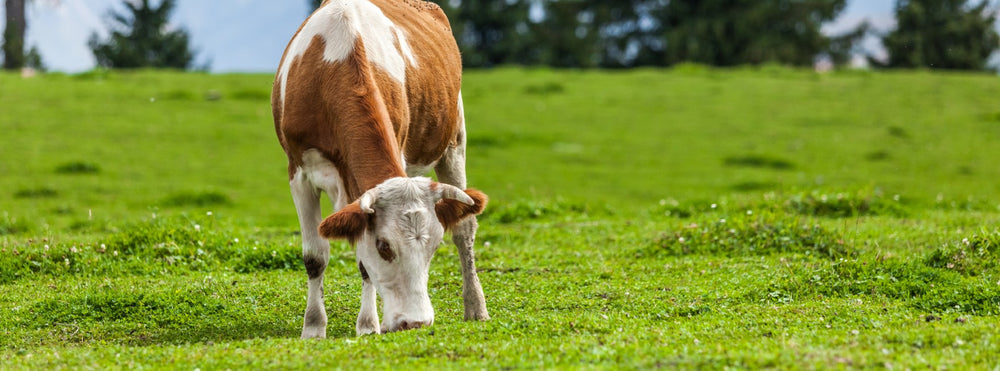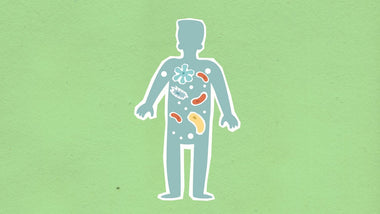What you need to know about “non-GMO” and “grass-fed” food labels

"Non-GMO"

Before we get to "non-GMO", it might be useful to explain what a "GMO" is.
A genetically modified organism (GMO) is a plant, animal, bacteria or virus whose genetic makeup has been modified using gene splicing. This creates combinations of genes in plants, animals, bacteria and viruses that do not occur in nature. When it comes to food, GMOs mostly relate to plant agriculture (although genetically modified salmon and pork have been approved for human consumption and farm animals often consume feed derived from GMO crops).
So, are GMO crops a bad thing? It's complicated.
Although few studies have been conducted on the safety of GMOs, the GMO part is probably not a problem. After all, people have been crossbreeding plants and creating new genetic combinations for centuries. The issue is that GMOs tend to go hand-in-hand with herbicides, with many GMO crops bioengineered specifically for herbicide resistance. And it’s traces of those herbicides in or on the crops that could affect health, especially with repeated exposure. Having said that, GMO crops are also bred to be insect resistant which actually reduces the amount of pesticides needed. And if the goal is to feed a growing global population, creating food crops that can reliably go from seed to plant is a game changer.
No question GMOs are controversial. They are also highly prevalent in our food supply: The vast majority of corn, soy, and sugar beet crops grown in North America are genetically modified. And those crops – and their derivatives - are commonly found as ingredients in most packaged and processed foods.
That means, if you’re shopping in a grocery store and want to avoid GMOs, you will need to look for the non-GMO label (or purchase only organic-certified items). But as with organic certification, keep in mind that the non-GMO label provides little indication of whether or not a product is actually healthy: There are shelves full of non-GMO products with little or no nutritional value (think cheese puffs, potato chips, fruit twists).
The opposite can also be true: at Step One Foods we don't use genetically modified ingredients. We just don't make a big deal out it or even bother with a seal. Because "non-GMO" is not what makes our foods special.
"Grass-Fed"

Moving over to the meat section, what does the “grass-fed” label really mean? It’s probably not what you think.
When I see “grass-fed” on a package of red meat I imagine the picture above: a cow spending its entire life roaming around a pasture nibbling on grass and clover - or at least getting scoops of hay in a stall. But that's just a fantasy. Cows might start their lives with some roaming and grass consumption, but by about 8 months, as calves wean off drinking their mother’s milk, they are typically moved to a feedlot where they are given a grain-based diet. Grain is more calorie dense which means cows gain weight faster. Bye-bye pasture.
Feeding grain to cattle might make them grow bigger faster, but that comes with consequences. Cows are meant to eat grass – not grains. Adding grains can affect a cow’s digestion, upset pH balance in the gut and cause bacterial overgrowth. Which then requires antibiotics. Which can lead to antibiotic resistance. And so on and so on.
About 95% of cattle in the US are grain fed for at least part of their lives. Paradoxically, “grass-fed” does not identify the 5% that aren’t! “Grass fed” simply indicates that at some point in its life, the cow ate some grass. That includes the time it was a calf and still mostly dependent on its mother’s milk for nutrition. In other words, “grass fed” is a pretty useless term. It’s a bit like qualifying air as “oxygen containing.”
If you want to eat meat from cows that were never grain-fed, the term you should be looking for is “grass-finished” – which, at least to me, seems to imply that the cow just ate some grass before heading off to the slaughterhouse. In reality, “grass-finished” means that the cows ate grass, plants, and shrubs their entire lives. Another term for grass-finished cows is “pasture-raised”. So that’s a callout you should also be on the lookout for.
Meat from truly 100% pasture raised free-roaming cows – besides being less likely to have been exposed to a multitude of antibiotics – has been found to contain less total fat than traditional beef, more omega-3 fatty acids and more CLA (conjugated linoleic acid - another type of fat with potential heart health benefits).
But let’s not get ahead of ourselves. Like beef from corn-fed cows, meat from grass-finished cows delivers plenty of cholesterol, saturated fat and choline, and their associated heart health risks. And just because a cow is grass-finished does not mean it was never exposed to any antibiotics, hormones or pesticides. To avoid those, you would have to purchase “certified organic grass-finished beef.” (Which though better in terms of unwanted chemical exposures, is still relatively high in cholesterol, saturated fat and choline).
Wow. That’s a lot of terms, qualifiers and nuances to keep straight.
Might just be easier to eat less red meat.

Tested & Proven Results.
- Cardiologist formulated
- Supported by over 500 publications
- Clinically-proven, in a double-blind randomized trial with Mayo Clinic and The University of Manitoba
80% of participants lowered their cholesterol in just 30 days. With just two servings per day, Step One Foods offers a proven-effective way to naturally lower LDL (bad) cholesterol.
Get heart health tips and articles like this, delivered right to your email.
New articles every week.
You may also like...

The Most Misunderstood Heart Number (Plus Your Tune-Up Checklist)

Why Two People Can Eat the Same Calories—and Only One Gains Weight

You don’t need to avoid foods with cholesterol…except for these


